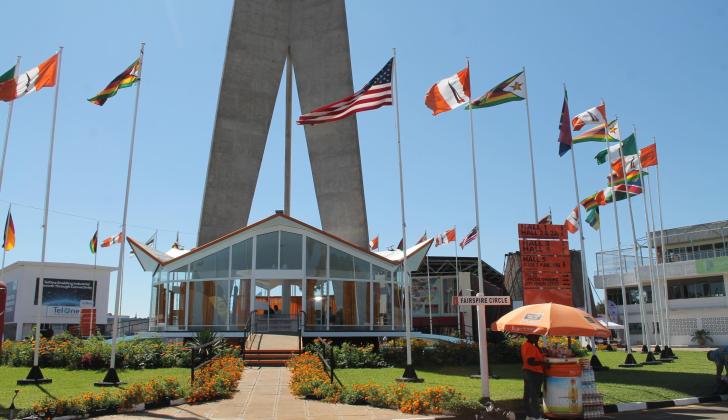News / National
Bulawayo uninspired by Zanu-PF 'love-fest'
22 Oct 2024 at 07:02hrs |
0 Views

ZANU-PF leaders, functionaries, and activists are set to begin arriving in Bulawayo today for the party's 21st National People's Conference, which kicks off tomorrow at the ZITF grounds and runs until Saturday. The conference will be officially opened by President Emmerson Mnangagwa on Friday, with a closing ceremony scheduled for the following day.
Despite the anticipation surrounding the conference, observers have labeled the event a "love-fest," contrasting the celebratory atmosphere with the pressing challenges facing Bulawayo, the country's second-largest city. Perennial water shortages have plagued the city, with the Bulawayo City Council currently providing only two days of water supply each week.
The city's once-thriving industrial base has also been hit hard by economic difficulties, leading to operational shutdowns and rising unemployment rates. In an interview, Winos Dube, a representative of the Bulawayo United Residents Association, expressed disappointment over the lack of engagement with local stakeholders during such significant national events.
"It is very sad and disappointing that the ruling party, which forms the government, does not recognize other stakeholders like residents' associations during these national conferences," Dube said. "If only we could be invited to express our concerns as citizens affected by these issues."
Dube highlighted the ongoing water crisis as a critical concern, noting that it has persisted for years without effective solutions. "We are always in a serious predicament regarding water, and it seems like no real solutions are being implemented," he said.
He also pointed to the rising unemployment rate in Bulawayo, which has forced many residents to turn to the informal sector for survival. "Most of their activities rely on electricity and water. Without these essentials, people are seriously affected," Dube added.
Economic challenges have further compounded the struggles faced by residents. "The introduction of the local currency has led to its devaluation, making prices unaffordable. It seems there is no one monitoring these issues," Dube lamented. He called on ZANU-PF leadership to provide a platform for residents to voice their concerns, particularly regarding the vital role of water in attracting investment.
Gorden Moyo, director of the Public Policy and Research Institute of Zimbabwe (PPRIZ), echoed Dube's sentiments, suggesting that the ruling elite has become disconnected from the realities faced by ordinary citizens. "The ZANU-PF leaders are aware of the challenges in Bulawayo, but they have become impervious to advice and counsel," Moyo stated. He criticized the party's pattern of visiting the city without engaging with alternative voices that could offer solutions to the currency crisis and governance issues.
Professor Stephen Chan, a Professor of World Politics at the University of London, concurred, noting that the conference would likely serve as a platform for public displays of party unity while concealing deeper political maneuvering. "Behind the scenes, there will be much plotting about succession scenarios," Chan remarked, emphasizing the lack of young leadership within ZANU-PF compared to other African nations.
As the conference commences, the stark contrast between the party's celebrations and the urgent needs of Bulawayo's residents will likely continue to resonate, raising questions about the government's responsiveness to the challenges faced by its citizens.
Despite the anticipation surrounding the conference, observers have labeled the event a "love-fest," contrasting the celebratory atmosphere with the pressing challenges facing Bulawayo, the country's second-largest city. Perennial water shortages have plagued the city, with the Bulawayo City Council currently providing only two days of water supply each week.
The city's once-thriving industrial base has also been hit hard by economic difficulties, leading to operational shutdowns and rising unemployment rates. In an interview, Winos Dube, a representative of the Bulawayo United Residents Association, expressed disappointment over the lack of engagement with local stakeholders during such significant national events.
"It is very sad and disappointing that the ruling party, which forms the government, does not recognize other stakeholders like residents' associations during these national conferences," Dube said. "If only we could be invited to express our concerns as citizens affected by these issues."
Dube highlighted the ongoing water crisis as a critical concern, noting that it has persisted for years without effective solutions. "We are always in a serious predicament regarding water, and it seems like no real solutions are being implemented," he said.
He also pointed to the rising unemployment rate in Bulawayo, which has forced many residents to turn to the informal sector for survival. "Most of their activities rely on electricity and water. Without these essentials, people are seriously affected," Dube added.
Economic challenges have further compounded the struggles faced by residents. "The introduction of the local currency has led to its devaluation, making prices unaffordable. It seems there is no one monitoring these issues," Dube lamented. He called on ZANU-PF leadership to provide a platform for residents to voice their concerns, particularly regarding the vital role of water in attracting investment.
Gorden Moyo, director of the Public Policy and Research Institute of Zimbabwe (PPRIZ), echoed Dube's sentiments, suggesting that the ruling elite has become disconnected from the realities faced by ordinary citizens. "The ZANU-PF leaders are aware of the challenges in Bulawayo, but they have become impervious to advice and counsel," Moyo stated. He criticized the party's pattern of visiting the city without engaging with alternative voices that could offer solutions to the currency crisis and governance issues.
Professor Stephen Chan, a Professor of World Politics at the University of London, concurred, noting that the conference would likely serve as a platform for public displays of party unity while concealing deeper political maneuvering. "Behind the scenes, there will be much plotting about succession scenarios," Chan remarked, emphasizing the lack of young leadership within ZANU-PF compared to other African nations.
As the conference commences, the stark contrast between the party's celebrations and the urgent needs of Bulawayo's residents will likely continue to resonate, raising questions about the government's responsiveness to the challenges faced by its citizens.
Source - southern eye
Join the discussion
Loading comments…





































